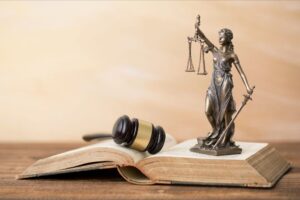
By Edward McIntyre
You’re approached after church one Sunday. “Would you serve on a board the church has established to oversee church finances?” Cornered, you reluctantly agree. “But even though I’m a lawyer, I won’t serve as the board’s or church’s lawyer. Clear?” “Yes, quite clear.”
At your first meeting, you reiterate your caveat: you’re there like every other board member; you’re not the board’s lawyer. Neither the board nor the church are your clients. Your fellow board members nod in agreement. You acknowledge, however, that, like every one of them, you have a fiduciary duty to the board and to the institution. You settle into your chair, and your first meeting begins.
Have you just unintentionally subjected yourself to possible State Bar discipline? “Not possible,” you say. No client; not practicing law; just overseeing church finances.
Not so fast. A lawyer served as the administrator of her parents’ estate. When the State Bar charged her with, among other misconduct, a breach of fiduciary duty for the way she manipulated the estate to her favor and the disadvantage of her siblings, she raised the “no client;” and “not practicing law” defense. It failed.
The State Bar Court Review Department held:
The law is clear that even if [the lawyer] was not practicing law, [the lawyer] was required to conform to the ethical standards required of attorneys. (Crawford v. State Bar (1960) 54 Cal.2d 659, 668 [“Attorneys must conform to professional standard in whatever capacity they are acting in a particular matter. [Citations]”] An attorney who breaches fiduciary duties that would justify discipline if there was an attorney-client relationship may be properly disciplined for the misconduct. (In the Matter of McCarthy(Review Dept. 2002) 4 Cal. State Bar Ct. Rptr. 364, 373).
In the Matter of Schooler (Review Dept. 2016) 5 Cal. State Bar Ct. Rptr. 494, 503.
Accordingly, a lawyer can commit an act of moral turpitude in violation of Business and Profession Code section 6106 whether the lawyer’s “misconduct occurred in the course of his relations as an attorney ‘or otherwise.’ Further, if an attorney accepts a relationship of trust, he or she is held to the high standards of a fiduciary.” (In the Matter of Saxon(Review Dept. 2020) 5 Cal. State Bar Ct. Rptr. 728, 735 [emphasis in original]; Worth v. State Bar (1976) 17 Cal.3d 337, 341 (“An attorney who accepts the responsibility of a fiduciary nature is held to the highest standards of the legal profession whether or not he acts in his capacity of an attorney.”). A lawyer’s fiduciary duty is characterized as “uberrima fides,” a duty of “[t]he most abundant good faith; absolute and perfect candor or openness and honesty; the absence of any concealment or deception however slight.” (David Welch Co v. Erskin & Tully (1988) 203 Cal.App.3d 884, 890, fn. 2, overruled on other grounds, Lee v. Hanley (2015) 61 Cal.4th 1225; see also, Fair v. Bakhtieri (2011) 195 Cal.App.4th 1135, 1140-1141.)
So, by all means, answer the call to serve. As lawyers, we bring unique skill sets to such volunteer activity; we have the education and experience to make genuine contributions. But when we do, recognize the standard to which we will be held and the prism through which our conduct may be judged.